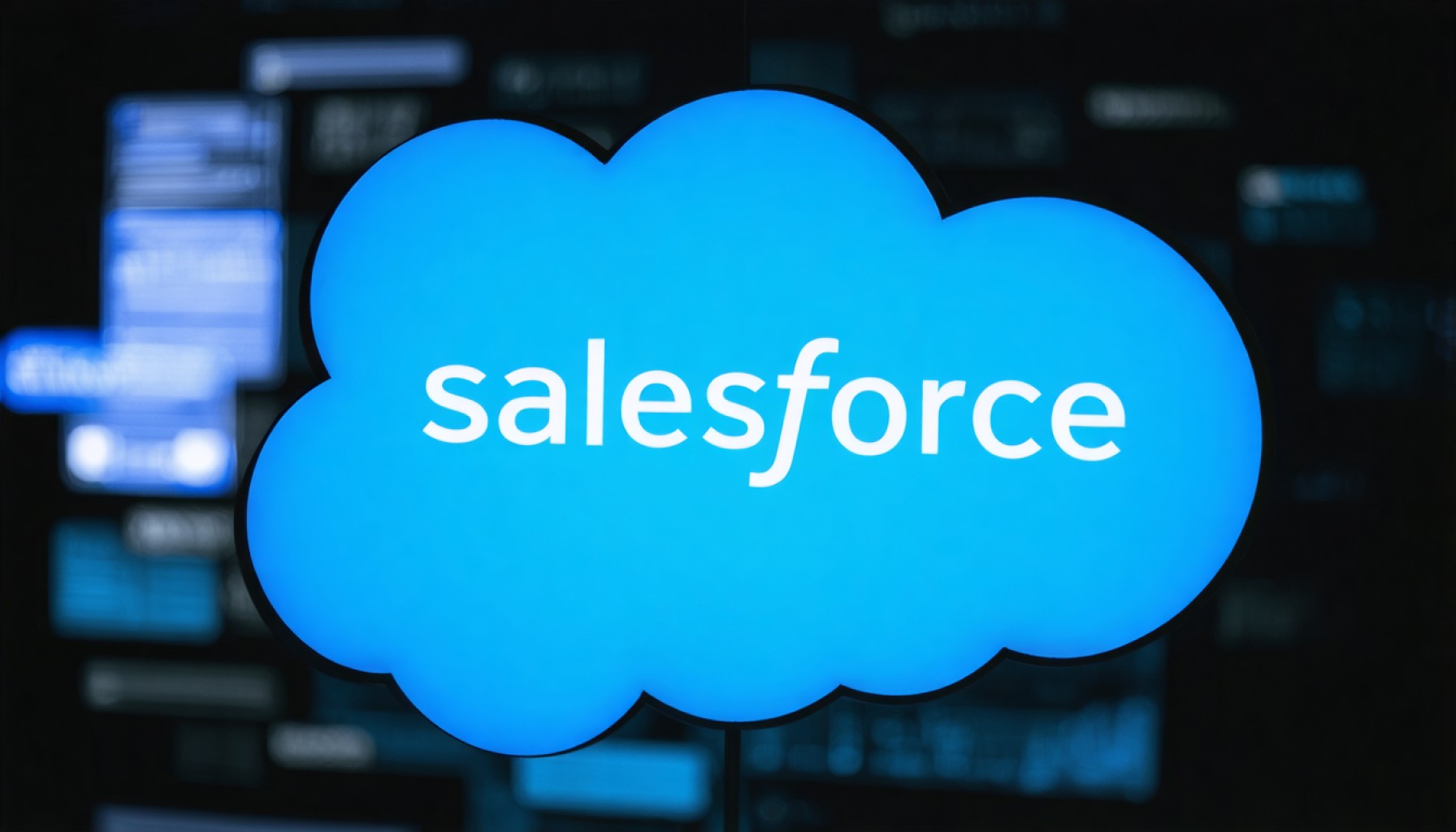
This image was generated using artificial intelligence. It does not depict a real situation and is not official material from any brand or person. If you feel that a photo is inappropriate and we should change it please contact us.
Salesforce: Reimagining Workflows. Are You Ready for the Next Tech Leap?
- Salesforce’s innovations are transforming traditional CRM systems into integrated platforms powered by AI and ML.
- The Salesforce AI Cloud suite enhances operations with predictive analytics, automating responses, and personalizing customer interactions.
- Salesforce’s Carbon Accounting feature supports businesses in tracking and reducing their carbon footprint, emphasizing sustainability.
- Advancements in automation are poised to liberate human resources for more creative tasks and problem-solving.
- Businesses must evaluate their readiness to leverage these technologies to maintain competitiveness in a rapidly changing digital landscape.
In an era where digital transformation reshapes industries, Salesforce emerges as a pivotal force, introducing technologies that promise to revolutionize how businesses operate. Triggered by advancements in artificial intelligence (AI) and machine learning (ML), Salesforce’s latest innovations transcend traditional CRM systems, evolving into robust platforms that seamlessly integrate with enterprise operations.
The company recently announced Salesforce AI Cloud, a suite that introduces cutting-edge analytical capabilities. Going beyond mere data collection, this integration predicts customer behaviors, automates responses, and personalizes interactions. Its implications are vast, from enhancing customer satisfaction to driving revenue growth.
Moreover, Salesforce’s commitment to sustainability through its unique Carbon Accounting feature positions it as a leader in environmental accountability. This tool allows businesses to track, analyze, and reduce their carbon footprint, aligning corporate practices with global sustainability goals.
Looking ahead, these features foreshadow a future where automation thrives, freeing human resources for creative problem-solving. As organizations grapple with digital challenges, Salesforce’s comprehensive solutions offer not just a pathway to survive but an opportunity to excel.
As Salesforce continues to innovate, businesses must ask themselves: Are we equipped to harness these advancements? The answer could shape their competitiveness in an increasingly digital world, where the only constant is change.
Unlocking Salesforce: Your Ultimate Guide to AI-Powered Business Transformation
New Insights into Salesforce’s Innovations
In a rapidly evolving digital landscape, Salesforce continues to stand out as a transformative leader in integrating advanced AI and machine learning technologies into its robust CRM and business solutions. Here’s a detailed look at some of the newest features and insights.
1. How is Salesforce AI Cloud Revolutionizing Business Operations?
Salesforce AI Cloud offers a comprehensive suite that extends beyond data usage to predictive analytics, allowing businesses to forecast customer behavior, automate routine responses, and personalize client interactions in real-time. These capabilities translate into improved customer experiences and increased revenue potential.
– Use Cases: Retail companies can predict purchase patterns, while service industries can automate customer support to handle common queries.
– Limitations: High initial investment and a steep learning curve for fully leveraging AI features.
– Innovations: Integration of natural language processing for more intuitive customer interactions.
2. What is Salesforce’s Approach to Sustainability with Carbon Accounting?
Salesforce’s Carbon Accounting tool is pivotal for companies aiming to meet their sustainability goals. This feature assists businesses in tracking and managing their carbon footprints, crucial for regulatory compliance and corporate responsibility.
– Pros and Cons: Aids in environmental accountability but might require a dedicated team to manage and interpret data effectively.
– Sustainability Insights: Aligns with global objectives such as the Paris Agreement by promoting reduced emissions and sustainable practices.
3. What Challenges Do Organizations Face When Implementing Salesforce’s New Technologies?
Adapting to these new technological advancements can be challenging. Organizations need to evaluate their readiness and the potential impact on existing workflows.
– Compatibility Issues: Existing systems may require updates or replacements to ensure seamless integration with Salesforce.
– Security Aspects: With enhanced capabilities, there is also an increased need for robust security measures to protect sensitive data.
– Market Analysis: Companies that rapidly adapt are likely to gain a competitive edge, while laggards may struggle to keep pace.
Conclusion
Salesforce’s ongoing innovations present both opportunities and challenges for businesses in diverse sectors. By addressing key questions about implementation, sustainability, and integration, companies can position themselves to not only leverage these technologies but also drive significant growth and impact in an era defined by continuous change.
Comments (0)